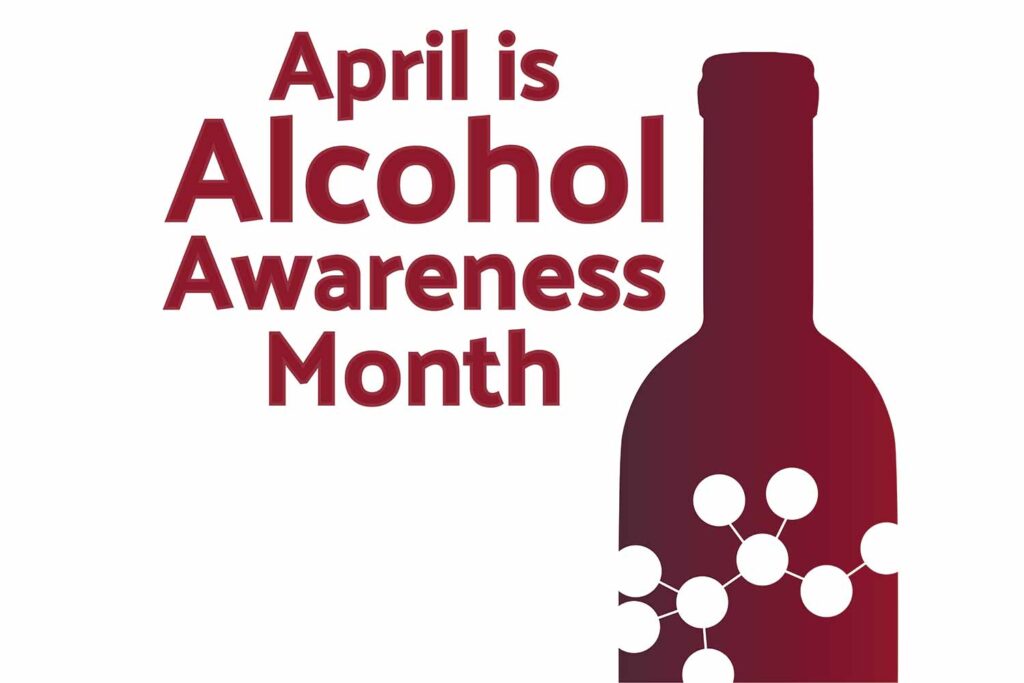Raising awareness for Alcohol Awareness Month
Every April since 1987 the National Council on Alcoholism and Drug Dependence (NCAAD) sponsors Alcohol Awareness Month. Launched originally to educate college students about the dangers of excess drinking, it has evolved into a national campaign to raise awareness about the harms of alcohol abuse and the nature of alcoholism or alcohol use disorder (AUD) as a disease in need of treatment.
Toward these ends, the NCAAD, in conjunction with a host of community groups, public health organizations and treatment facilities around the country, encourage education, promote the de-stigmatization of AUD and aim to defuse the denial that often comes with problem drinking.
Staggering spike in alcohol-related deaths in 2020
While the aims of Alcohol Awareness Month are worthy and pressing in any year, they take on an even greater tragic urgency in the current one. A study conducted by the National Institute on Alcohol Abuse and Alcoholism, and published in the Journal of the American Medical Association, found that alcohol-related deaths saw an unprecedented increase, rising 25% in 2020 compared to 2019. To put this steep rise in perspective, consider that the average annual increase in alcohol related deaths between 1999 and 2019 was 3.6%, and that between the previous pair of years, 2018 and 2019, while slightly higher, was itself just 5%.
The cluster of factors surrounding this souring death rate are by now familiar, but bear repeating. The rupture of the COVID-19 pandemic caused dislocation, separation, isolation, alienation, uncertainty and financial harm, accompanied by a surge in the onset of mental health disorders like anxiety and depression, among others. With coping mechanisms frayed and people pushed to the breaking point, the number of those who turned to drugs and alcohol—desperate for some relief—rose dramatically.
Correspondingly, the new heights reached in the crisis of drug addiction were brought into resounding focus by the release of the CDC report which revealed that fentanyl overdoses had become the number one cause of death in the U.S. for adults ages 18-45. Now, with the release of data on alcohol-related deaths, we see that just as the disease of the addiction doesn’t discriminate, neither does the substance of its expression.
Recovery Centers of America helps you break free from your unhealthy relationship to drugs and alcohol
As alarming as these death rates are, you are not helpless. There are concrete, proven steps that you can take to overcome the ill effects of alcohol and flourish in a life free from alcohol.
Recovery Centers of America is a world-class drug and alcohol addiction treatment facility delivering expert, compassionate care to people struggling with substance abuse as well as support for their families.
Here’s how Recovery Centers of America can help you find the road to recovery from alcohol use disorder:
- Alcohol screening. If you would like to learn more about your drinking patterns, we offer a free and anonymous online alcohol use disorder assessment. Also, as part of the observance of Alcohol Awareness Month, National Alcohol Screening Day provides ample additional resources.
- Alcohol detox. After a prolonged period of heavy drinking, the physical and psychological symptoms of alcohol withdraw can be difficult to endure. RCA provides medically monitored withdraw management, also known as detoxification, in a safe, soothing environment. This is crucially important, as severe alcohol withdraw can lead to seizures and even death, if not medically monitored.
- Inpatient alcohol use disorder treatment. Once you’re safely detoxed of alcohol, you could then move into residential inpatient care. There you will benefit from comprehensive treatment, attending to the needs of mind, body and spirit, through immersion in 12-Step programs, individual, group and family therapy, and a variety of other therapeutic and educational offerings. At RCA, we believe in treating the source of the problem and recognize that use is a symptom, among other contributing factors.
- Outpatient alcohol use disorder treatment. Outpatient programs allow you to maintain your personal and professional schedules while receiving one individual and one group session per week, at least for the first year of recovery. This is a vital part of the progression of care, and critical to the ongoing process of recovery. RCA makes outpatient treatment available to you in-person or virtually through a HIPAA compliant web and video conferencing platform that delivers our expert addiction treatment wherever you are.
- Intervention services. If you’re concerned about a loved one’s drinking habits, rather than your own, RCA’s intervention services have a 90% success rate in empowering people to get the treatment they need—in a supportive, caring way without shame or stigma.
- Ongoing recovery support. You can maintain a long-term recovery community through a 12-Step program like Alcoholics Anonymous or Narcotics Anonymous, as well as RCA’s Alumni Association, which allows you to stay committed and connected for a lifetime of recovery.
If you or a loved one are struggling with drugs or alcohol, call now 1-800-RECOVERY. We offer 24/7 admissions, transportation and intervention services.







